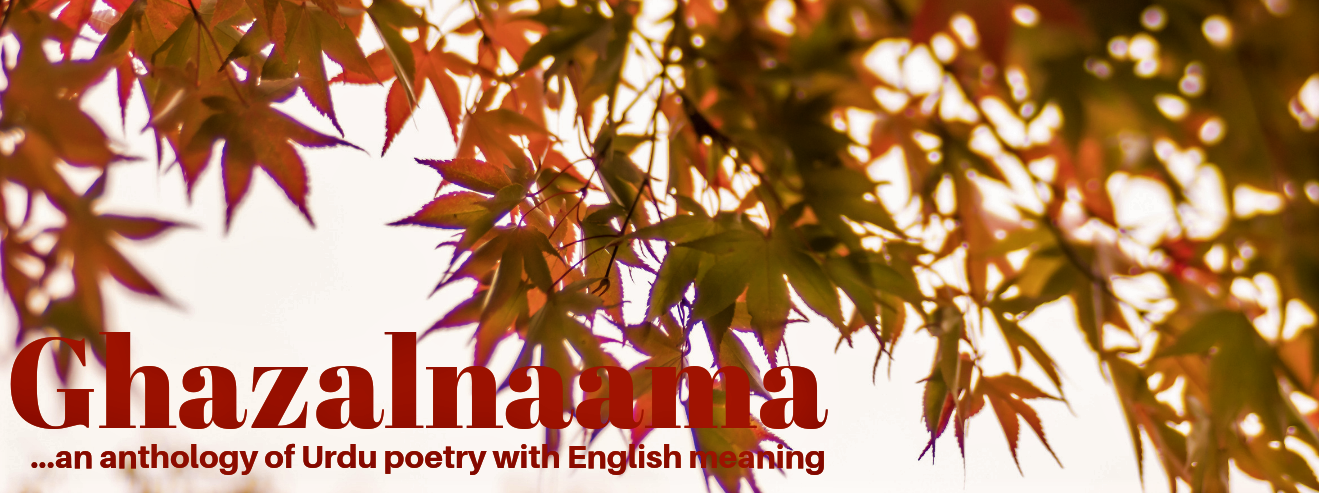[Urdu Couplet #40]
शब (shab) = night; शबे-इंतज़ार (shab-e-intezaar) = the night of awaiting; तलाश (talash) = search; सहर (sahar) = morning
तुम आये हो न शबे-इंतज़ार गुज़री है
तलाश में है सहर, बार-बार गुज़री है
Tum aaye ho na shab-e-intezaar guzri hai
Talash me hai sahar, baar-baar guzri hai
 |
| Faiz Ahmed Faiz (1911-1984) |
शब (shab) = night; शबे-इंतज़ार (shab-e-intezaar) = the night of awaiting; तलाश (talash) = search; सहर (sahar) = morning
[English Meaning]
Neither you came nor did this night of awaiting has passed
In search (of you), the dawn has passed by again and again
Neither you came nor did this night of awaiting has passed
In search (of you), the dawn has passed by again and again
Notes:
In this couplet, the poet narrates pathos of the lover who is waiting indefinitely for his beloved. The lover spends his night longing for his beloved and spends his day searching for her. He keeps waiting but neither the night seems to end nor does his beloved comes back. In the first line, the poet appears to talk of one night but in the second line, his reference "baar baar guzri hai" reveals that the poet (the lover) has been pining for his beloved for several days. It also accentuates his longing and distress.







